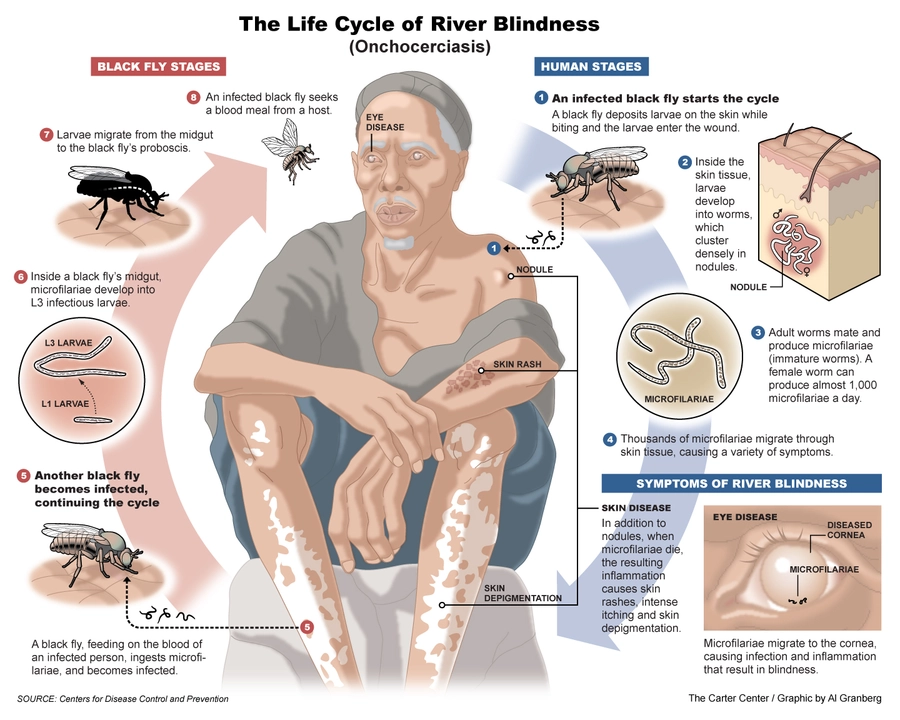Onchocerciasis Treatment: Simple Answers and Medicinal Insights
If you or someone you know is dealing with onchocerciasis—people call it river blindness—you probably just want real answers. No endless medical speak. What really helps? The main player here is ivermectin. Doctors and public health groups use it all across Africa, Latin America, and Asia because it’s proven to kill the baby worms (microfilariae) that cause most of the itching, eye problems, and skin damage.
The way it works is simple: a single ivermectin dose, taken by mouth, can paralyze and kill off loads of those baby worms within just a few days. The catch? It can’t kill the adult worms living under the skin, so people usually need these treatments every 6 or 12 months—sometimes for years. So, this is more like a long game, but it works wonders for stopping the spread and giving relief.
Are there side effects? Honestly, yes, and they’re pretty common the first time. Think headache, fever, muscle aches, some swelling (especially near the eyes if there are lots of worms). These usually fade in a day or two, and for most folks, the benefits—less itching, better skin, and no new blindness—way outweigh a rough day or two.
What about new drugs or extra therapies? Doxycycline, an antibiotic, is getting buzz because it targets bacteria living inside the worms (Wolbachia). Taking doxycycline for a few weeks can slowly wipe out adult worms, though it’s a slower and less immediate option compared to ivermectin and isn’t practical for mass campaigns. When people can’t take ivermectin—maybe they’re pregnant or super allergic—sometimes doctors just manage symptoms while waiting for a safer window.
Managing your environment makes a difference too. Onchocerciasis spreads through repeated bites from blackflies. So, public health groups run mass community treatments, hand out bed nets, and sometimes try to control the fly population near rivers. All of this helps keep new cases down.
Big organizations like the WHO and partnerships with drug manufacturers have made regular ivermectin treatments free in most places that need them. That’s huge for villages without big budgets. Success stories in Central and South America show that onchocerciasis can be beaten back—sometimes even eliminated—when whole communities take part and stick to the treatment schedules.
If you’re worried about complications—like vision loss or irreversible skin patches—it’s worth starting treatment early. Routine checkups matter because side effects aren’t the only risk: under-treating can lead to late surprises you don’t want. If you see a new rash or eye problem, let your doctor know right away. For most people, staying on schedule with ivermectin is the closest thing to a cure you can get for now, and it genuinely changes lives.
Albendazole's role in treating onchocerciasis
As a copywriter, I recently came across the topic of Albendazole's role in treating onchocerciasis, which I found fascinating. Onchocerciasis, also known as river blindness, is a parasitic disease caused by the worm Onchocerca volvulus. It affects millions of people, mainly in Africa, and can lead to severe itching, skin lesions, and even blindness. Albendazole is an antiparasitic medication that has shown great promise in the treatment of onchocerciasis. When used in combination with other drugs like ivermectin, Albendazole has been found to be highly effective in killing the adult worms and preventing the spread of the disease. This treatment strategy, known as Mass Drug Administration (MDA), has had a significant impact on reducing the prevalence and intensity of onchocerciasis in affected areas. It's truly remarkable how this medication has helped millions of people regain their health and prevent further complications from this debilitating disease. In conclusion, Albendazole plays a crucial role in the fight against onchocerciasis. By working alongside other medications, it has proven to be a powerful weapon in treating this disease and improving the quality of life for those affected. It is my hope that with continued research and development, we can one day eliminate onchocerciasis for good.
